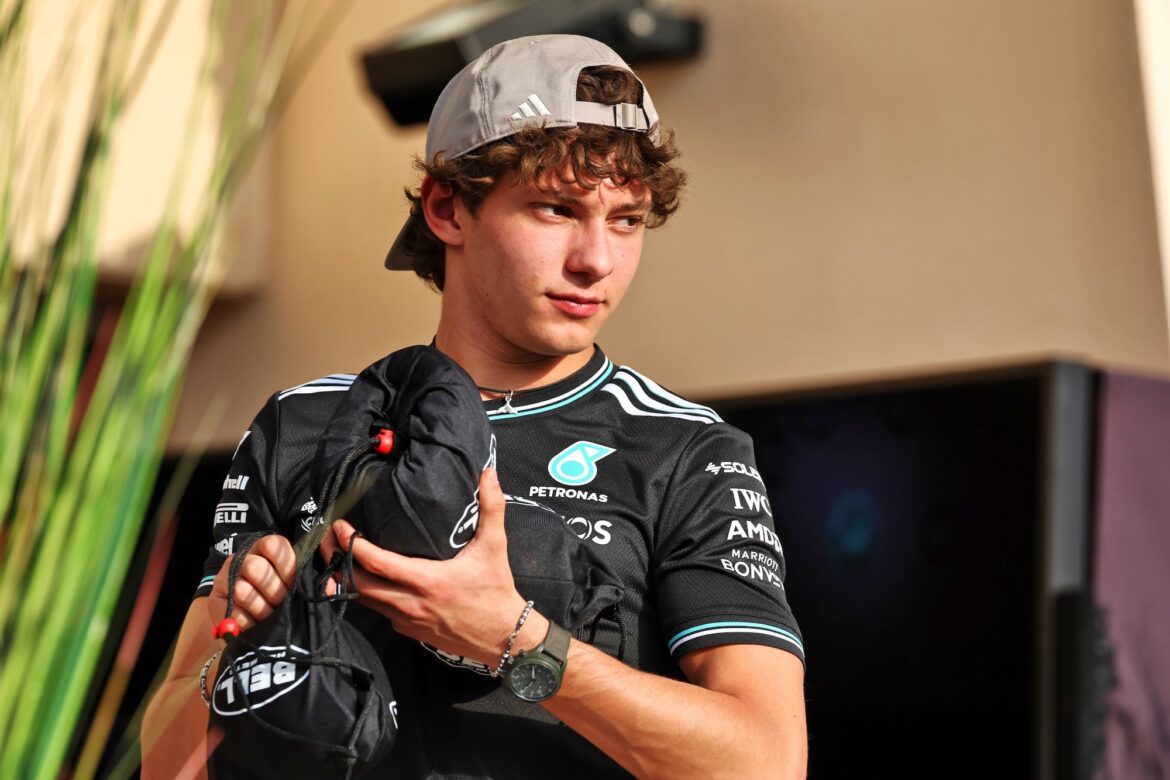Helmut Marko Critiques Mercedes Over Kimi Antonelli’s F1 Debut
Helmut Marko, a prominent advisor for Red Bull Racing, has expressed his strong disapproval regarding how Mercedes has handled Kimi Antonelli’s debut in Formula 1 this season. The young Italian driver made his entry into the sport following Lewis Hamilton’s departure to Ferrari at the end of the 2024 season. At just eighteen years old, Antonelli was given the opportunity to showcase his talent in Formula 1, and there was a significant buzz around his potential. If he had managed to win one of the first three races, he would have set a new record as the youngest driver to ever secure a victory in the sport, previously held by Max Verstappen. However, Antonelli’s performance during the season thus far has not lived up to the high expectations that surrounded him.
Despite achieving his first podium finish at the Canadian Grand Prix, where he secured third place, Antonelli has struggled to consistently score points. In fact, he has only managed to finish within the points in two out of the last eight races. Marko believes that the hype generated by Mercedes around Antonelli was premature and has inadvertently placed undue pressure on him as he adapts to the challenges of Formula 1.
The Differences in Driver Development Between Red Bull and Mercedes
In an interview with F1 Insider, Marko highlighted the stark contrast between the approaches of Red Bull and Mercedes when it comes to developing young drivers. He stated, "Our juniors first compete in the Racing Bulls, and they are not immediately exposed to the pressure of Formula 1." This developmental strategy allows young drivers to gain experience and build confidence before stepping into the spotlight of the premier racing series.
Marko further emphasized that Red Bull does not create excessive hype around a young driver before they get behind the wheel of a Formula 1 car. This is an important distinction, as it allows drivers to acclimate to the high-stakes environment without the added pressure of public expectations.
Kimi Antonelli’s Challenges in Formula 1
Despite being recognized as an exceptionally fast driver, Marko pointed out that Antonelli’s youth is a significant factor in his current struggles. "He is certainly a very quick driver, but he is also very young. He needs time," Marko explained. The transition from junior racing categories to Formula 1 is formidable, and young drivers often face a steep learning curve as they adapt to the intricacies of the sport.
One of the critical aspects of a driver’s success in Formula 1 is their confidence in the car they are driving. Marko noted that during a brief conversation with Antonelli at a hotel in Spa, the young driver expressed his lack of confidence in the Mercedes car. "He said he doesn’t have confidence in the car, and when he tries to push, he loses control," Marko shared. This lack of confidence can severely impact a driver’s performance, making it challenging to achieve the results that both the team and the driver aspire to.
The Importance of a Junior Team
Marko also pointed out that the absence of a junior team for Antonelli is a key reason why he has not yet reached his full potential. Red Bull has established a robust development program through its sister team, Racing Bulls, which allows young drivers to gain valuable experience in a less pressurized environment. This setup is crucial for nurturing talent and preparing them for the demands of Formula 1.
Without a similar support structure, Antonelli may find himself at a disadvantage as he navigates the complexities of the sport. The pressure to perform at an elite level can be overwhelming, especially for a young driver who is still honing their skills.
The Road Ahead for Kimi Antonelli
Moving forward, Marko believes that Antonelli requires time to adjust and find his rhythm in Formula 1. He emphasized that the young driver possesses immense potential, but the early pressure he faces could significantly influence his development. It is critical for both the driver and the team to manage expectations and allow Antonelli the space he needs to grow.
In a sport where performance is constantly scrutinized, it is easy for young talents to become overwhelmed. The key for Antonelli will be to focus on his progression and trust the process, knowing that many successful drivers have faced similar challenges during their early careers.
The Impact of Early Expectations
The early expectations placed on Antonelli can serve as a double-edged sword. On one hand, the excitement surrounding his debut can provide motivation and drive. On the other hand, it can create a burden that affects a driver’s mindset and performance. Marko’s insights underline the importance of carefully managing a young driver’s introduction to the sport, ensuring they have the support they need to thrive.
The Formula 1 landscape is filled with stories of young drivers who have faced immense pressure and scrutiny early in their careers. Some have risen to the occasion, while others have struggled under the weight of expectations. The difference often lies in the support systems in place and the approach taken by the teams.
Conclusion
In summary, Helmut Marko’s criticisms of Mercedes regarding Kimi Antonelli’s debut in Formula 1 shed light on the challenges faced by young drivers in the sport. The differences in developmental strategies between teams can significantly impact a driver’s ability to succeed. As Antonelli continues his journey in Formula 1, it is essential for him to find his footing and build the confidence necessary to excel in one of the most demanding environments in motorsport. With time, support, and the right mindset, Antonelli has the potential to become a formidable competitor in the world of Formula 1.
